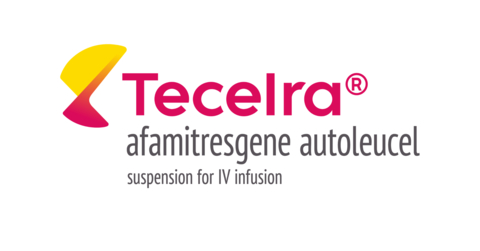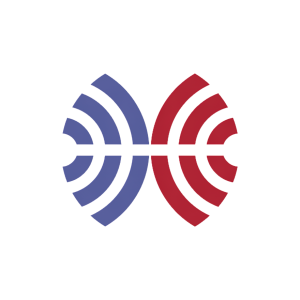Adaptimmune Receives U.S. FDA Accelerated Approval of TECELRA® (afamitresgene autoleucel), the First Approved Engineered Cell Therapy for a Solid Tumor
Approved for advanced MAGE-A4+synovial sarcoma in adults with certain HLA types who have received prior chemotherapy
TECELRA is the first new treatment option for people with synovial sarcoma in more than a decade
Adaptimmune to hold webcast at https://www.gowebcasting.com/13428 on August 2, at 8:00 a.m. EDT

TECELRA (afamitresgene autoleucel) logo
Adrian Rawcliffe, Adaptimmune's Chief Executive Officer:
“The approval of TECELRA is a momentous step in Adaptimmune’s journey to redefine the way cancer is treated and the culmination of a decade of groundbreaking R&D. I want to thank the patients, caregivers, investigators, and clinical teams as well as everyone at Adaptimmune and our partners who made possible this watershed moment for cell therapy and for people with synovial sarcoma. We are committed to advancing our robust clinical pipeline to serve more patients in need and plan to progress lete-cel, the next late-stage investigational treatment in our sarcoma franchise, with a rolling BLA submission to the FDA next year.”
The approval of TECELRA was based on results of the SPEARHEAD-1 (Cohort 1) trial, which included 44 patients. The major efficacy outcome was overall response rate (ORR) determined by independent review and supported by duration of response. TECELRA treatment resulted in an ORR of
Data from the pivotal SPEARHEAD-1 trial were previously published in The Lancet earlier this year.
With this approval, Adaptimmune is positioned to make a significant impact on the synovial sarcoma community. HCPs can begin testing patients, Adaptimmune systems are ready to take TECELRA orders, and an integrated support program, AdaptimmuneAssist, is available to enable a seamless and personalized experience through the treatment journey. Adaptimmune plans to have at least six to ten authorized treatment centers (ATCs) up and running this year and to onboard approximately 30 treatment centers within the first two years. These ATCs are recognized leaders in sarcoma research and treatment.
Brandi Felser, Chief Executive Officer, Sarcoma Foundation of America:
“For decades, therapeutic options for people diagnosed with synovial sarcoma have been limited. With a current five-year survival rate as low as
Sandra D’Angelo, MD, Sarcoma Medical Oncologist and Cell Therapist, Memorial Sloan Kettering Cancer Center; SPEARHEAD Trial Principal Investigator:
“TECELRA (afami-cel), which uses each patient’s own immune cells to recognize and attack their cancer cells in a one-time infusion treatment, is significantly different than the current standards of care for advanced synovial sarcoma. This approval represents a much-needed new option for people diagnosed with this sarcoma and an important milestone for the use of cell therapies in solid tumor cancers.”
TECELRA is contraindicated in adults who are heterozygous or homozygous for HLA-A*02:05P.
TECELRA can cause serious side effects, including cytokine release syndrome (CRS), immune effector cell–associated neurotoxicity syndrome (ICANS), prolonged severe cytopenia, infections, secondary malignancies, and hypersensitivity reactions. Most common adverse reactions (incidence ≥
Biomarker tests for human leukocyte antigens (HLA) type and melanoma-associated antigen A4 (MAGE-A4) tumor expression are required prior to treatment with TECELRA. Adaptimmune has partnered with Agilent Technologies for the development, manufacturing, and supply of a companion diagnostic for the MAGE-A4 biomarker, MAGE-A4 IHC 1F9 pharmDx, which also received approval today from the
For more information about TECELRA visit www.adaptimmune.com.
Conference Call Details
The Company will host a live webcast to provide additional details tomorrow, August 2, 8:00 a.m. EDT. A live webcast of the conference call and replay can be accessed here: https://www.gowebcasting.com/13428. Call in information is as follows: 1-844-763-8274 (TOLL FREE US or
About Synovial Sarcoma
There are more than 50 different types of soft tissue sarcomas which are categorized by tumors that appear in fat, muscle, nerves, fibrous tissues, blood vessels, or deep skin tissues.1 Synovial sarcoma accounts for approximately 5 to
About TECELRA
TECELRA® (afamitresgene autoleucel) is a melanoma-associated antigen A4 (MAGE-A4)-directed genetically modified autologous T cell immunotherapy indicated for the treatment of adults with unresectable or metastatic synovial sarcoma who have received prior chemotherapy, are HLA-A*02:01P, -A*02:02P, -A*02:03P, or -A*02:06P positive and whose tumor expresses the MAGE-A4 antigen as determined by FDA-approved or cleared companion diagnostic devices.
This indication is approved under accelerated approval based on overall response rate and durability of response. Continued approval for this indication may be contingent upon verification and description of clinical benefit in a confirmatory trial.
IMPORTANT SAFETY INFORMATION
CONTRAINDICATION: DO NOT use TECELRA in adults who are heterozygous or homozygous for HLA-A*02:05P.
BOXED WARNING: Cytokine release syndrome (CRS), which may be severe or life-threatening, occurred in patients receiving TECELRA. At the first sign of CRS, immediately evaluate patient for hospitalization and institute treatment with supportive care. Ensure that healthcare providers administering TECELRA have immediate access to medications and resuscitative equipment to manage CRS.
CRS
-
CRS occurred in
75% of patients (2% Grade ≥3) with a median onset of 2 days (range: 1 to 5 days) and median resolution of 3 days (range: 1 to 14 days). CRS (including Grade 1) was managed with tocilizumab in55% of patients who experienced CRS. - In patients who experienced CRS, the most common symptoms included fever, tachycardia, hypotension, nausea/vomiting, and headache.
Immune Effector Cell–associated Neurotoxicity Syndrome (ICANS)
-
ICANS has been observed following administration of TECELRA. One patient (
2% ) had Grade 1 ICANS with a median onset of 2 days and resolution of 1 day. - ICANS symptoms can include mental status changes, disorientation to time and place, drowsiness, inattention, altered level of consciousness, seizures, cerebral edema, impairment of cognitive skills, progressive aphasia, and motor weakness.
- Advise patients to refrain from driving and engaging in hazardous occupations or activities, such as operating heavy machinery or potentially dangerous machinery for 4 weeks following infusion due to the potential for neurologic events, including dizziness and presyncope.
Monitoring for CRS and ICANS During and Following TECELRA Infusion
- Ensure that healthcare providers administering TECELRA have immediate access to medications and resuscitative equipment to manage CRS and ICANS. Ensure patients are euvolemic prior to initiating TECELRA.
- During and following TECELRA administration, closely monitor patients for signs and symptoms of CRS and ICANS. Following treatment with TECELRA, monitor patients for at least 7 days at the healthcare facility. Continue to monitor patients for at least 4 weeks following treatment with TECELRA. Counsel patients to seek medical attention should signs or symptoms of CRS or ICANS occur.
- At the first sign of CRS or ICANS, immediately evaluate patients for hospitalization and administer supportive care based on severity and consider further management per clinical practice guidelines.
Prolonged Severe Cytopenia
-
Anemia, neutropenia, and/or thrombocytopenia can occur for several weeks following lymphodepleting chemotherapy and TECELRA infusion. Patients with Grade ≥3 cytopenia not resolved by week 4 included anemia (
9% ), neutropenia (11% ), and thrombocytopenia (5% ). The median time to resolution was 7.3 weeks (range: 6.1 to 8.4 weeks) for anemia, 9.3 weeks (range: 6.4 to 12.3 weeks) for neutropenia, and 6.3 weeks (range: 6.1 to 6.4 weeks) for thrombocytopenia. - Monitor blood counts after TECELRA infusion. Manage cytopenia with growth factor and blood product transfusion according to clinical practice guidelines.
Infections
-
Infections may occur following lymphodepleting chemotherapy and TECELRA infusion and occurred in
32% of patients (14% Grade 3). - Do not administer TECELRA to patients with active infections and/or inflammatory disorders.
- Monitor patients for signs and symptoms of infection before and after TECELRA infusion and treat patients appropriately.
- Febrile neutropenia was observed in patients after TECELRA infusion and may be concurrent with CRS. In the event of febrile neutropenia, evaluate for infection and manage with broad-spectrum antibiotics, fluids, and other supportive care, as medically indicated.
- Viral reactivation has occurred in patients following TECELRA. Perform screening for Epstein-Barr virus, cytomegalovirus, hepatitis B virus, hepatitis C virus, and human immunodeficiency virus (HIV) or any other infectious agents if clinically indicated. Consider antiviral therapy to prevent viral reactivation per local guidelines.
Secondary Malignancies
- Patients treated with TECELRA may develop secondary malignancies or recurrence of their cancer. Monitor for secondary malignancies.
Hypersensitivity Reactions
- Serious hypersensitivity reactions, including anaphylaxis, may occur due to dimethyl sulfoxide (DMSO) in TECELRA. Observe patients for hypersensitivity reactions during infusion.
Potential for HIV Nucleic Acid Test False-Positive Results
- The lentiviral vector used to make TECELRA has limited, short spans of genetic material that are identical to HIV. Therefore, some commercial HIV nucleic acid tests may yield false-positive results in patients who have received TECELRA.
Adverse Reactions
-
Most common adverse reactions (incidence ≥
20% ) are CRS, nausea, vomiting, fatigue, infections, pyrexia, constipation, dyspnea, abdominal pain, non-cardiac chest pain, decreased appetite, tachycardia, back pain, hypotension, diarrhea, and edema. -
Most common Grade 3 or 4 laboratory abnormalities (incidence ≥
20% ) were lymphocyte count decreased, neutrophil count decreased, white cell blood count decreased, red blood cell decreased, and platelet count decreased. -
Most common serious adverse reactions (≥
5% ) were CRS and pleural effusion.
Please see full Prescribing Information, including Boxed Warning and Medication Guide.
About AdaptimmuneAssist
An integrated support program, AdaptimmuneAssist is now available to provide access support for patients, their caregivers, and healthcare providers throughout the TECELRA treatment journey. AdaptimmuneAssist includes connection with a Treatment Navigator, travel and financial support programs for eligible patients, and access to the AdaptimmuneAssist Order Portal (for healthcare providers only). For more information, physicians and patients may call 1-855-246-9232.
About Adaptimmune
Adaptimmune is a fully integrated cell therapy company working to redefine how cancer is treated. With its unique engineered T cell receptor (TCR) platform, the Company is developing personalized medicines designed to target and destroy difficult-to-treat solid tumor cancers and improve the patient’s cancer treatment experience.
Forward-Looking Statements
This release contains "forward-looking statements" within the meaning of the Private Securities Litigation Reform Act of 1995 (PSLRA). Forward-looking statements address our expected future business, financial performance, financial condition, as well as the results of operations and often contain words such as “anticipate” “believe,” “expect,” “may,” “plan,” “potential,” “will,” and similar expressions, and are based on Adaptimmune’s current beliefs and expectations. Such statements are based only upon current expectations of Adaptimmune. Reliance should not be placed on forward-looking statements because they involve certain risks and uncertainties. Such risks and uncertainties could cause our actual results to differ materially from those indicated by such forward-looking statements, and include, without limitation: the success, cost and timing of our product development activities and clinical trials and our ability to successfully advance our TCR therapeutic candidates through the regulatory and commercialization processes. For a further description of the risks and uncertainties that could cause our actual results to differ materially from those expressed in these forward-looking statements, as well as risks relating to our business in general, we refer you to our Annual Report on Form 10-K filed with the Securities and Exchange Commission for the year ended 31 December, 2023, our Quarterly Reports on Form 10-Q, Current Reports on Form 8-K, and other filings with the Securities and Exchange Commission. The forward-looking statements contained in this press release speak only as of the date the statements were made and we do not undertake any obligation to update such forward-looking statements to reflect subsequent events or circumstances.
Dr. D’Angelo has financial interests related to Adaptimmune.
1. “What is a Soft Tissue Sarcoma?” American Cancer Society. https://www.cancer.org/cancer/types/soft-tissue-sarcoma/about/soft-tissue-sarcoma.html. Accessed June 24, 2024.
2. “Soft Tissue Sarcoma.” Cleveland Clinic. https://my.clevelandclinic.org/health/diseases/21732-soft-tissue-sarcoma. Accessed June 24, 2024.
3. Jami SA, Mobarak SA, Jiandang S, et al. Clinical and strategic outcomes of metastatic synovial sarcoma on limb. Int J Health Sci(Qassim). 2020;14:38–43.
*Per Kaplan-Meier method
View source version on businesswire.com: https://www.businesswire.com/news/home/20240801538240/en/
Investor Relations
Juli P. Miller, Ph.D. - VP, Corporate Affairs and Investor Relations
T : +1 215 825 9310
M : +1 215 460 8920
Juli.Miller@adaptimmune.com
Media Relations
Dana Lynch, Senior Director of Corporate Communications
M: +1 267 990 1217
Dana.Lynch@adaptimmune.com
Source: Adaptimmune Therapeutics plc







